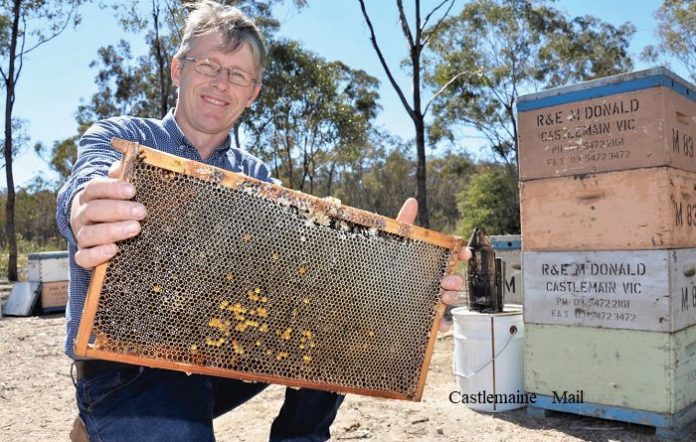
Eve Lamb
Castlemaine honey producer Peter McDonald is among many around Australia speaking up and watching closely as a lengthy, multi-jurisdictional stoush over who can use the words ‘manuka honey’ intensifies in a New Zealand tribunal this week.
For years, NZ manuka honey producers have attempted to trademark the words ‘manuka honey’ but Australian producers like Castlemaine’s McDonald family argue they’ve no basis for doing so, since the plant from which the valuable honey is derived grows natively in both countries. Now the Intellectual Property Office of New Zealand is hearing an application by the Manuka Honey Appellation Society which represents a group of New Zealand producers, for a certification mark on the word “manuka”. The Australian Manuka Honey Association is opposing the application.
Castlemaine’s McDonald family have been beekeeping and producing honey for generations.
Each season for years they’ve travelled statewide chasing honey flows from native Australian Eucalyptus and also from the Leptospermum (manuka) – a species of the myrtle plant family.
Mr McDonald says his parents started professionally beekeeping just after World War Two and used the term manuka way back then for the product produced here from the Leptospermum manuka plant species.
“We have always called it manuka,” he said.
“Manuka is a common name. It makes us really sad. We’ve always produced manuka honey in various parts of the state,” he says.
“It sort of feels like they’re trying to steal something off us, and trying to con the public to say manuka honey only grows in New Zealand when we know for absolute fact that is incorrect.”
Manuka honey is produced from the nectar of Leptospermum scoparium which is indigenous to Australia and New Zealand and has become valuable due to its purported medicinal qualities.
The term “manuka” is documented as having been used in Australia since the late 19th century. Read more in today’s Mail…

